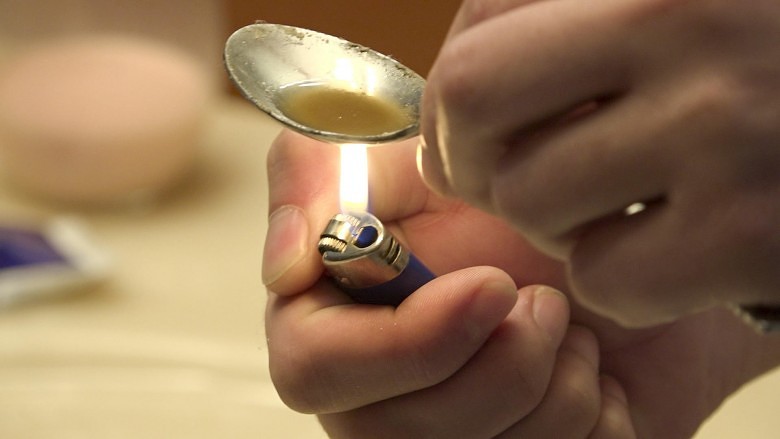Baker distributes $700,000 for cities to buy overdose remedy
By Evan Lips | January 6, 2016, 19:33 EST
 (Photo courtesy of HBO)
(Photo courtesy of HBO) BOSTON – Massachusetts Gov. Charlie Baker and the state Department of Public Health on Wednesday announced plans to steer $700,000 in grants to Boston and 39 other Bay State communities hit hardest by the opioid drug crisis.
The money will be used to buy and administer naloxone, also known as Narcan, a medication that has been proven to treat heroin and other opioid overdoses. Opioids like fentanyl and oxycodone are highly addictive synthetic opiates.
“This grant will help save more lives as our administration continues to pursue new and wide-ranging tools to combat the opioid epidemic, including the ability for medical personnel to intervene with those who have overdosed,” Baker said in a statement announcing the grants. “We look forward to continuing to work with the legislature to pass meaningful reforms, and are pleased to support our first responders’ access to immediate, life-saving resources.”
The announcement notes that Baker’s opioid working group last year recommended establishing a fund to pay for bulk purchases of the drug.
The grants, “along with the creation of the bulk purchasing fund, will increase the amount of naloxone available in hot-spot communities where it is needed most,” Lt. Gov. Karyn Polito said in the announcement. “These resources will help ease the costs of medication, enabling our firefighters and police officers to save more lives.”
Naloxone is the fastest and most effective tool when it comes to reversing the effects of an overdose, said Marylou Sudders, the state Health and Human Services secretary. In a heroin or opioid overdose, a person loses conciousness and their breathing and heart can stop. Monica Bharel, the state’s Public Health commissioner, said naloxone has provided one of Massachusetts’ “greatest success stories in the fight against the opioid epidemic.”
In order to apply for naloxone grants, cities and towns must have had at least an average of six overdose deaths per 100,000 of population annually.
Grants ranging from $10,000 to $50,000, based on population, will go to Boston and the following communities: Attleboro, Barnstable, Beverly, Brockton, Chelsea, Chicopee, Everett, Fall River, Falmouth, Fitchburg, Framingham, Haverhill, Holyoke, Lawrence, Leominster, Lowell, Lynn, Malden, Medford, New Bedford, North Attleboro, Peabody, Pittsfield, Plymouth, Quincy, Revere, Salem, Saugus, Somerville, Springfield, Stoughton, Taunton, Waltham, Wareham, Westfield, Weymouth, Winthrop, Woburn and Worcester.











